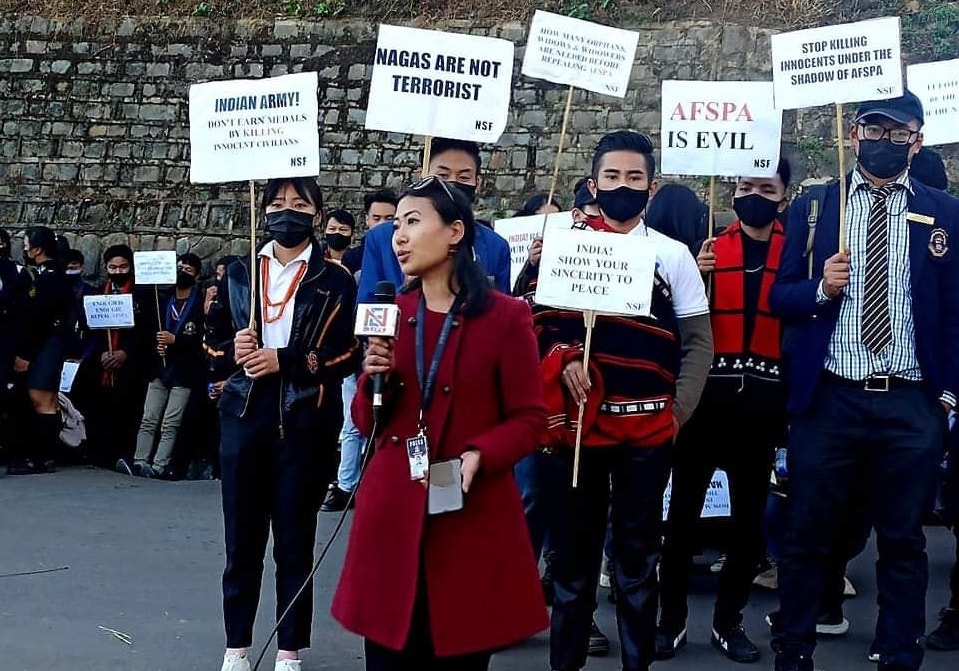
Hundreds in India’s conflicted eastern state of Nagaland began a two-day cross-country march Jan. 10 to protest the Armed Forces Special Powers Act (AFSPA), which gives the military broad power to use deadly force in areas where it is declared to be in effect. Some 200 set out from Dimapur, the state’s largest city, and the march had swelled to over a thousand by the time it reached state capital Kohima, 75 kilometers away. The action was called in response to last month’s massacre of 14 residents in the village of Oting, where army troops fired on what proved to be truck filled with coal-miners on their way home after work—not separatist guerillas, as had apparently been suspected. The march was organized by the Global Naga Forum and the Naga Mothers’ Association, whose spokesperson Rosemary Dzüvichü accused the Indian government of viewing the Naga people as “the other.” She lamented: “We still have this colonial attitude being shown to us.” (Nagaland Post)
On Dec. 20, two weeks after the Oting massacre, Nagaland’s assembly unanimously passed a resolution demanding the repeal of AFSPA. But the federal government 10 days later extended the act for another six months. (Al Jazeera)
After the cross-country march, Army Chief Gen. MM Naravane called the Oting incident “highly regrettable,” and said “appropriate action” would be taken based on the reaults of an internal military investigation. (Nagaland Post)
See our special feature on the Oting massacre.
Photo: Nagaland Express





Police report on Nagaland killings released
An investigation by Nagaland’s state police found army personnel did not follow rules of engagement during last year’s deadly anti-insurgency operation in Mon district. Up to 30 jawans (recruits) and a major are named in a chargesheet based on the findings of the Special Investigation Team. (Hindustan Times, Indian Express)